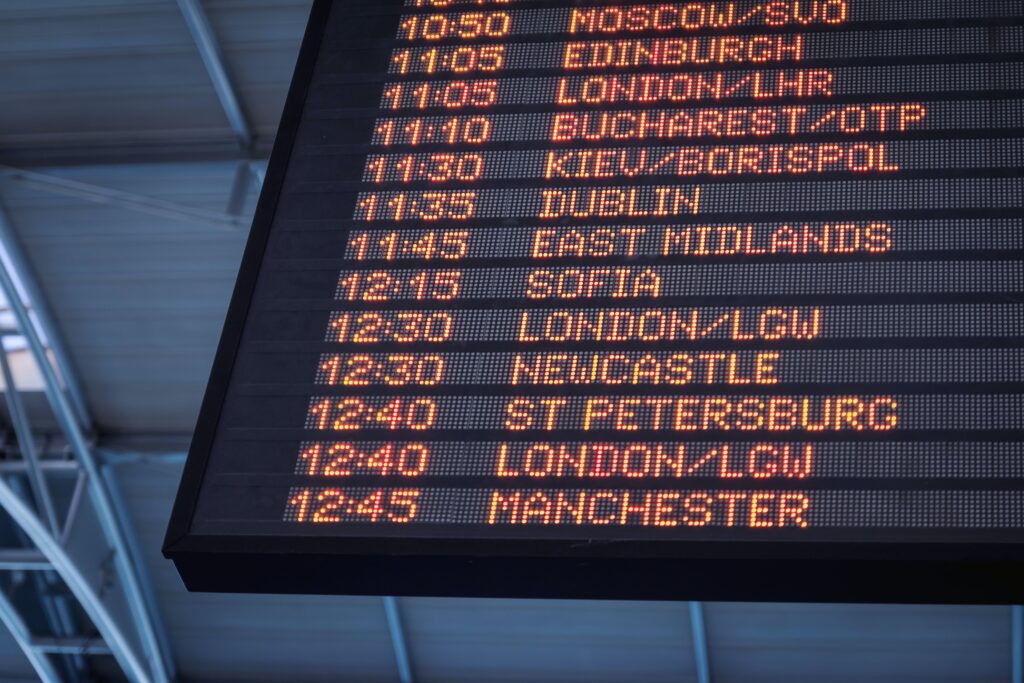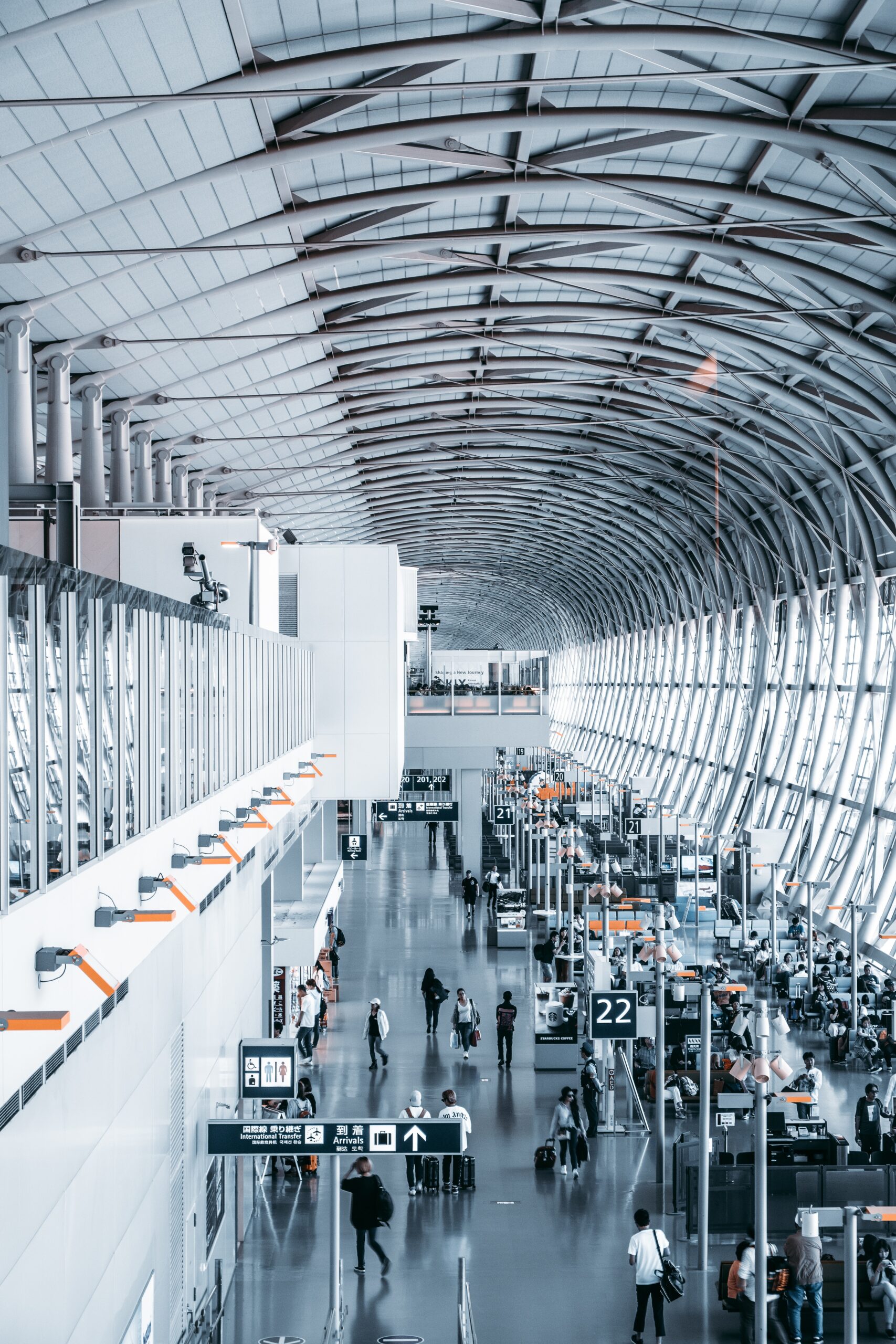Bulgaria Transportation Guide
Bulgaria Transportation Guide: Transportation includes a network of buses, trains, and taxis. Highways connect cities, and Sofia has a metro system.


Bulgaria Transportation Guide – International Airports
Bulgaria has several international airports that serve as important gateways for travelers coming to the country. The major international airports of Bulgaria are:
Sofia Airport (SOF): Located in the capital city, Sofia Airport is the busiest and largest international airport in Bulgaria. It serves as the primary gateway for international travelers and offers connections to various destinations in Europe and beyond.
Burgas Airport (BOJ): Situated in the coastal city of Burgas, Burgas Airport serves as a key international airport for travelers visiting the Black Sea coast and nearby resorts.
Varna Airport (VAR): Located in Varna, this airport is another major gateway to Bulgaria’s Black Sea coast, providing connections to various European destinations during the tourist season.
Plovdiv Airport (PDV): Serving the city of Plovdiv and the surrounding region, Plovdiv Airport offers international flights to some European destinations.
National Airports
Bulgaria has several national airports, which are regional airports serving domestic flights and, in some cases, limited international connections. These national airports are important for connecting different parts of the country and providing transportation options to various destinations. Some of the national airports of Bulgaria include:
Gorna Oryahovitsa Airport (GOZ): Located near the town of Gorna Oryahovitsa, this airport serves the region of Veliko Tarnovo in central Bulgaria.
Dobrich Airport (LBDB): Situated near the city of Dobrich in northeastern Bulgaria, this airport primarily serves the Dobrich region.
Rousse Airport (LBRS): Located near the city of Rousse in northern Bulgaria, this airport provides regional connections.
Silistra Airport (LBST): Serving the town of Silistra in northeastern Bulgaria, this airport caters to domestic flights.
Haskovo Airport (LBHS): Located near the city of Haskovo in southern Bulgaria, this airport serves the Haskovo region.
Stara Zagora Airport (LBSZ): Serving the city of Stara Zagora and the surrounding area in central Bulgaria.
Vidin Airport (LBDV): Located near the city of Vidin in northwestern Bulgaria, this airport serves the Vidin region.
Bulgaria Transportation Guide – Trains
Bulgaria has a railway network that provides a relatively convenient and affordable way to travel within the country and to neighboring destinations. Here are some key points about the trains of Bulgaria:
National Railway Operator: The national railway operator of Bulgaria is the Bulgarian State Railways (BDZ). BDZ manages the majority of the railway infrastructure and operates both passenger and freight trains.
Train Types:
Bulgaria has several types of trains to cater to different travel needs:
InterCity (IC): These are faster and more comfortable trains that connect major cities in Bulgaria, offering a more efficient way to travel longer distances.
Express (Ex): Regular express trains that connect larger towns and cities within the country.
Passenger (P): Local passenger trains that stop at various stations, providing access to smaller towns and rural areas.
International Connections: Bulgaria’s railway network also extends to neighboring countries, making it possible to travel to and from Bulgaria by train. International train services connect Bulgaria with countries such as Romania, Greece, Serbia, and Turkey.
Scenic Routes: Some train journeys in Bulgaria offer scenic views of the country’s landscapes, especially when traveling through the picturesque Balkan Mountains or along the Black Sea coast.
Ticketing: Train tickets can be purchased at train stations, online, or through mobile apps. It’s advisable to book tickets in advance for popular routes, especially during peak travel seasons.
Comfort and Amenities: The comfort level and amenities on Bulgarian trains can vary based on the type of train and the specific route. InterCity trains generally offer a higher level of comfort with air conditioning and reserved seating, while local passenger trains may have more basic facilities.
Train Stations: Major cities like Sofia, Plovdiv, Varna, and Burgas have central train stations that serve as important transportation hubs.
Connectivity: Trains in Bulgaria provide good connectivity between cities and towns, making them a popular mode of transport for both locals and tourists.


Bulgaria Transportation Guide – Buses
Buses are an important mode of transportation in Bulgaria, providing extensive coverage throughout the country and connecting various cities, towns, and rural areas. Here are some key points about buses in Bulgaria:
Regional and Local Buses: Bulgaria has a comprehensive network of regional and local bus services operated by different companies. These buses connect smaller towns and villages to larger cities and serve as a crucial means of transportation for both locals and tourists.
Long-Distance Buses: Long-distance buses connect major cities and towns across Bulgaria, providing an efficient and affordable way to travel between different regions of the country.
International Buses: Bulgaria’s bus network extends beyond its borders, connecting to neighboring countries. International bus services offer routes to cities in nearby countries such as Romania, Greece, Turkey, Serbia, and North Macedonia.
Ticketing: Bus tickets can be purchased at bus stations, online, or directly from the bus driver in some cases. It’s generally advisable to book tickets in advance for popular routes or during peak travel times.
Comfort and Amenities: The comfort level and amenities provided on buses can vary depending on the type of service. Long-distance buses usually offer air conditioning and comfortable seating, while local buses may be more basic.
Bus Stations: Major cities in Bulgaria have central bus stations that serve as transportation hubs, where passengers can find ticket counters, waiting areas, and other facilities.
Connectivity: Buses provide excellent connectivity to even remote and less populated areas, making them a vital mode of transport for exploring different parts of Bulgaria.
Integration with Public Transport: Buses are often integrated into the country’s public transport system, allowing passengers to easily transfer between buses and trains using the same ticket or fare card.
Links of interest
Airlines:
Trains:
BDZ
Sofia Central Station
Trainline
Buses:
Central Bus Station Sofia
Union Ivkoni
Etap-Grup
Ride-Sharing:


We recommend
Bulgaria travel tips
Our guide offers essential Bulgaria travel tips and insights for an unforgettable journey. Plan your trip with us!
Bulgaria Transportation Guide – SIM Cards
When traveling to Bulgaria, consider these tips for getting a SIM card:
Providers: Choose from major providers like Telenor, A1, and Vivacom, offering good coverage across the country.
Purchase Points: Buy SIM cards at airports, kiosks, or provider stores. Ensure your phone is unlocked for compatibility.
Data Plans: Select a prepaid plan based on your data needs. Plans often include data, calls, and texts.
ID Requirements: Some providers may require identification, so carry your passport or ID when purchasing.
Top-Up Options: Recharge your balance easily at provider stores, kiosks, or through mobile apps.
Coverage: Check coverage maps to ensure connectivity in areas you plan to visit, especially in rural or mountainous regions.
Internet Speeds: Bulgaria generally has good internet speeds. 4G is widely available in urban areas.
Roaming: EU/EEA roaming regulations apply, but confirm with your provider about any additional charges.
Hotspot Usage: Utilize your data for tethering or creating a personal hotspot.
Validity Period: Confirm the validity period of your plan to avoid unexpected deactivation.
Special Tourist Packages: Inquire about special tourist packages that providers may offer for short-term visitors.
Emergency Services: Familiarize yourself with emergency numbers and services in Bulgaria.
Dual SIM Phones: If you need to keep your home number, consider using a dual SIM phone.
SIM Card Size: Check your phone’s SIM card size and ensure compatibility with the purchased card.
Data-only SIMs: If you primarily need data for your trip, inquire about data-only SIM options.
Lost or Stolen SIM: Report a lost or stolen SIM card promptly to your provider.
Local Apps: Download local map and translation apps for a smoother experience, even without constant data usage.
Currency Converter
Currency Converter EUR/USD: Mon, 2 Jun.
Unit Converter
Bulgaria Transportation Guide – Maps
What map do you need?
Choose your destination
More information about this country








